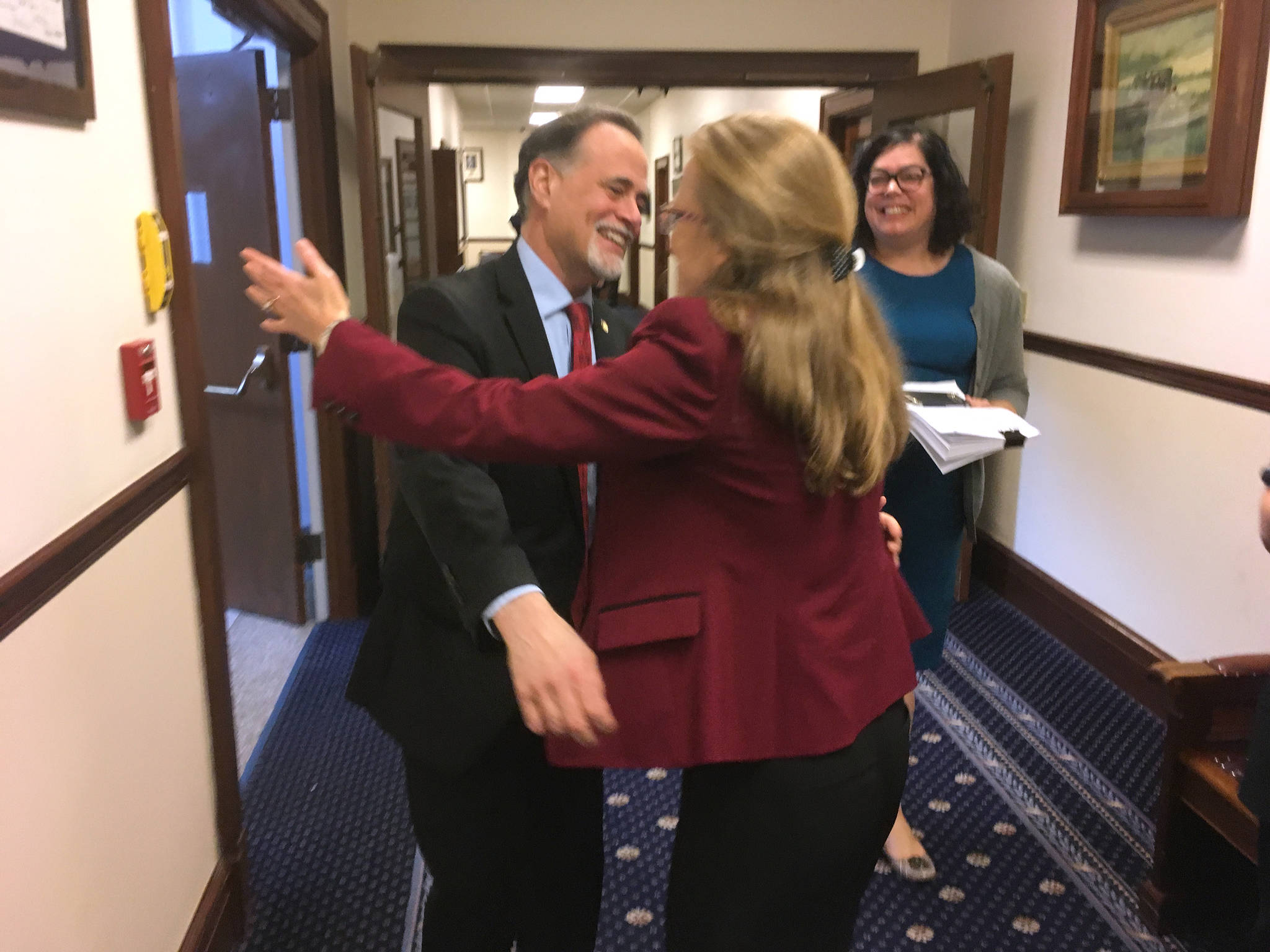After six years of work, the Alaska Legislature on Saturday afternoon approved a statewide ban on smoking in most public places across Alaska.
Senate Bill 63 was approved by the Alaska House of Representatives in an 32-7 vote and after a procedural vote in the Senate is on its way to the desk of Gov. Bill Walker, who is expected to sign it.
“Considering what it’ll mean for health and public safety for working Alaskans, after a six-year struggle, it was worth it. Well worth it,” said Sen. Peter Micciche, R-Soldotna and the bill’s lead sponsor.
When signed into law, SB 63 will forbid smoking in bars, restaurants and most businesses statewide. Smoking will also be forbidden in buses, taxis and similar forms of public transportation. About 50 percent of Alaska’s population lives in cities such as Bethel, Anchorage and Juneau that already ban public smoking; SB 63 will extend those bans into areas that have not already banned smoking.
Thanks to #akleg for passing SB 63, & congrats to sponsor @SenatorMicciche. Ending smoking in workplaces & public areas gives Alaskans the freedom to breathe easy, so no one has to choose between their health and their livelihood. #saferalaska
— Governor Bill Walker (@AkGovBillWalker) May 13, 2018
“This is a really significant moment for Alaskans across the state, for the 50 percent of Alaskans who are not currently protected by a smokefree law. They will now have that protection,” said Emily Nenon, Alaska government relations director for American Cancer Society Cancer Action Network.
There are limited exemptions in the bill for such things as fishing boats, smoking areas at airports and food trucks (if only one person is working there). Private clubs may allow smoking if they don’t serve alcohol and were open before 2017. Tobacco stores can allow smoking if they have a special ventilation system or if the store is in its own building, away from other businesses.
The ban covers e-cigarettes and marijuana as well as traditional smoking, but there are exemptions for those specialty smoking practices. E-cigarette stores that opened before 2017 can allow use of those devices, and e-cigarette stores with separate ventilation systems can allow them on site, too.
Marijuana businesses can allow on-site smoking in a separate building licensed under regulations that have not yet been written by the Alaska Marijuana Control Board.
“It’s been a long time coming,” said Rep. Lance Pruitt, R-Anchorage, of the smoking ban. “It’s the right thing to do.”
SB 63 and a predecessor bill in the 2015-2016 Legislature were stymied by a single legislator, Rep. Gabrielle LeDoux, R-Anchorage. Micciche introduced another predecessor bill in the 2013-2014 Legislature, but it failed to advance to a vote of the full Senate before the session ended.
LeDoux, who this session is chairwoman of the powerful House Rules Committee, declined to schedule SB 63 for a vote until the final day of the session. She also supervised the addition of several amendments to the bill in the rules committee.
Two of those amendments were later removed, but the most significant — allowing municipalities to opt out of the ban with an areawide vote — remains in the bill.
Despite that fact, LeDoux was one of the seven votes against the measure.
The smoke-free workplace bill, #AKSB63, just passed the #AKLeg House!
— Smoke-Free Alaska (@SmokeFreeAlaska) May 13, 2018
Nenon said the inclusion of the opt-out provision means her organization and others that oppose smoking will have some more work to do.
“Because of the opt-out provision that was added in the rules committee, we will have to remain ever-vigilant to make sure that the right to breathe is not taken away,” she said.
Youth e-cig ban also passes
In a separate move, the Alaska Legislature also approved Senate Bill 15, which prohibits Alaskans younger than 19 from buying e-cigarettes.
Alaska law already prohibits vaping by youths if the liquid within the e-cigarette contains nicotine. SB 15, which must receive the approval of Walker before becoming law, extends that ban to all vaping.
Sen. Gary Stevens, R-Kodiak, sponsored the bill and has previously said he did so because it is not known whether e-cigarette use is harmful.
The bill passed the Senate 18-0 on March 8 and the House approved a slightly revised version 37-3 on Saturday.
• Contact reporter James Brooks at jbrooks@juneauempire.com or 523-2258.

